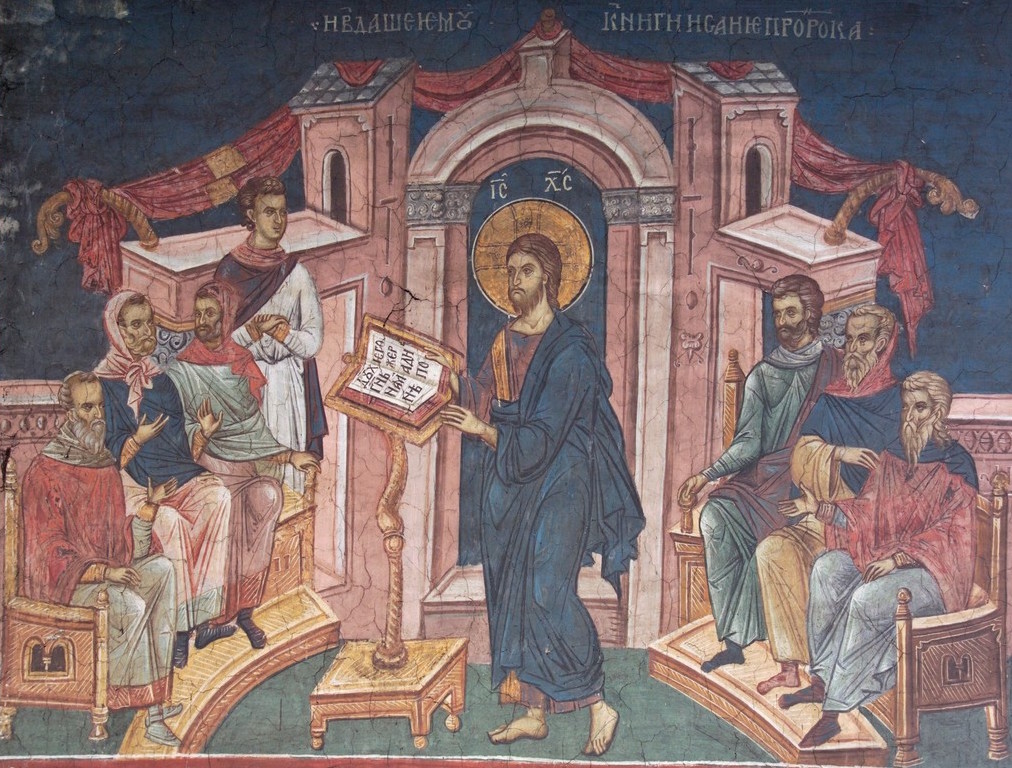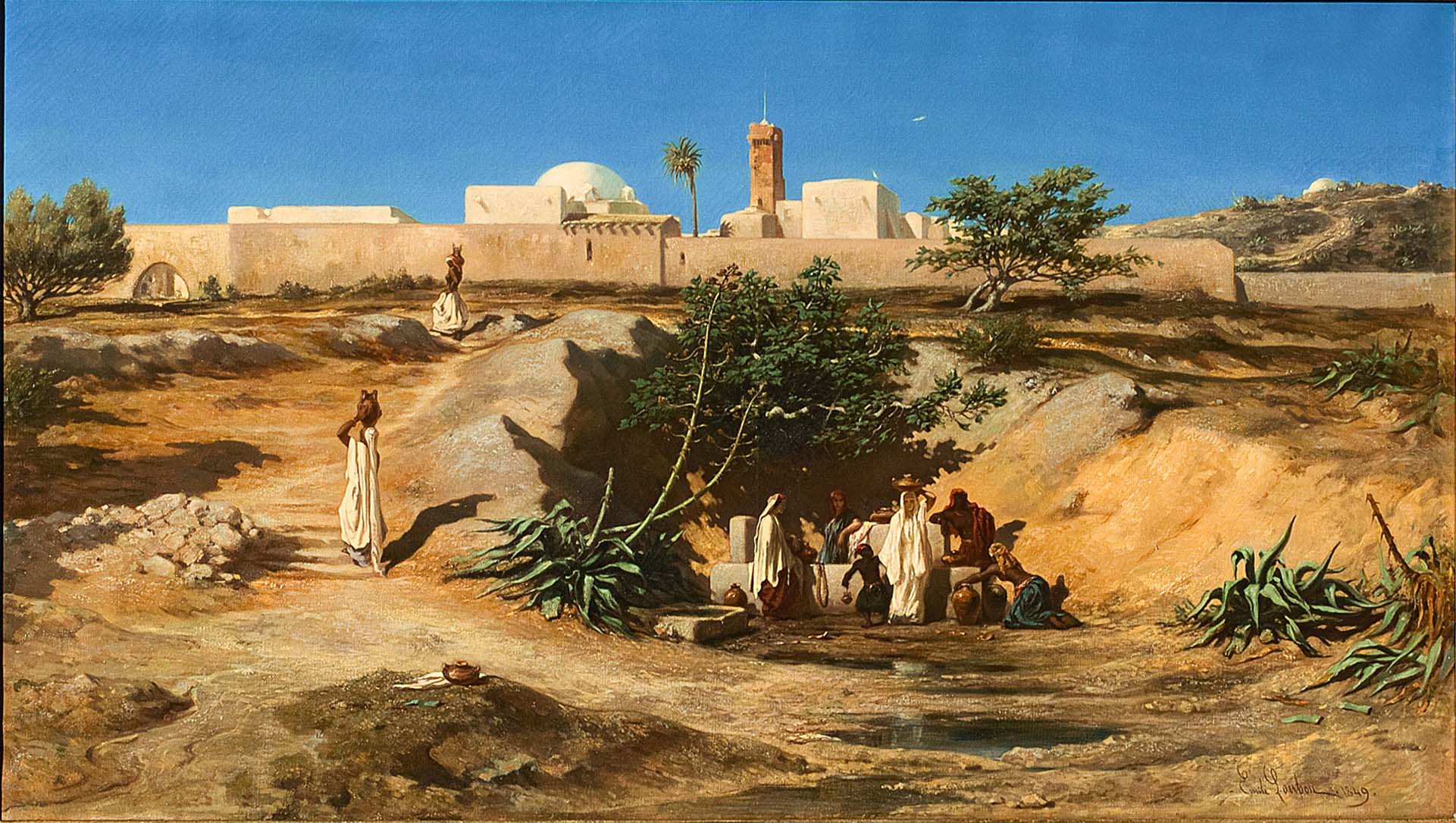GRACE AS A GIFT OF THE GIVER
Luke 4:21–30
Fourth Sunday after the Epiphany
Analysis by Nathan Hall
21 Then he began to say to them, “Today this scripture has been fulfilled in your hearing.” 22 All spoke well of him and were amazed at the gracious words that came from his mouth. They said, “Is not this Joseph’s son?” 23 He said to them, “Doubtless you will quote to me this proverb, ‘Doctor, cure yourself!’ And you will say, ‘Do here also in your hometown the things that we have heard you did at Capernaum.’ ” 24 And he said, “Truly I tell you, no prophet is accepted in the prophet’s hometown. 25 But the truth is, there were many widows in Israel in the time of Elijah, when the heaven was shut up three years and six months, and there was a severe famine over all the land; 26 yet Elijah was sent to none of them except to a widow at Zarephath in Sidon. 27 There were also many lepers in Israel in the time of the prophet Elisha, and none of them was cleansed except Naaman the Syrian.” 28 When they heard this, all in the synagogue were filled with rage. 29 They got up, drove him out of the town, and led him to the brow of the hill on which their town was built, so that they might hurl him off the cliff. 30 But he passed through the midst of them and went on his way.
DIAGNOSIS: Beauty in the Eye of the Beholder
Step 1: Initial Diagnosis (External Problem): Familiarity Breeds Control
Jesus, in his home town of Nazareth, has just finished speaking in the synagogue. He has just taken up his ministry after being tempted in the wilderness, but even so he already has become a bit of a celebrity, speaking in synagogues as he wanders around the Galilean countryside. So the people of Nazareth are prepared to go wild with joy as the hometown hero promises all manner of good things: good news to the poor, release to the captive, sight to the blind, freedom from oppression, the year of the Lord’s favor. The crowd marvels at the “gracious words.”
In this case gracious is from the Greek word charis, the word that also speaks of God’s grace. In origin this word just meant the property of a thing that elicits joy; gradually the meaning morphed to include beauty or gracefulness and then morphed to mean grace, thankfulness and gift, or so Trench’s Synonyms of the New Testament informs me.
In this case, the synagogue-goers of Nazareth hear a thing that at first gives them joy, but only insofar as it fits their schemes and desires. The beauty they are predisposed to see, is a world where God showers blessings on them and theirs. The idea that God’s messiah might shower blessings in a way they do not plan is foreign and leads to rage.
Step 2: Advanced Diagnosis (Internal Problem): Will to Power Thwarted Leads to Rage
This rage reveals that the hearts of those Nazarenes were fixated in the wrong place. Their hearts were fixated on their own exaltation. But God is doing something much grander through Jesus. God is reaching across boundaries and plotting the restoration of the worst kinds of people. The Nazarenes will not have it, because their heart’s desire is at odds with God’s work.
Step 3: Final Diagnosis (Eternal Problem): Rage Leads to Rejection of God’s Messiah, Who in Turn Rejects Them
The Nazarenes jump well ahead in the gospel’s plot, trying to execute Jesus at the outset of his ministry. Their rage leads them to the brink of murder, though Jesus merely suggested that God’s saving acts might be directed towards other people and nations. However, mysteriously enough, Jesus eludes his would-be murderers, and abandons them to their evil schemes. Their blindness to real beauty and grace leaves them unable to perceive God’s work. Instead, God judges them by leaving the Nazarenes clutching at dreams that will never be fulfilled. If the only god they will receive is the god they want to see, then the real God will not accept them, but will instead pass through their midst and go on his way. God abandons them to their own devices.
PROGNOSIS: Grace as a Gift of the Giver
 Step 4: Initial Prognosis (Eternal Solution): Losing Control, Finding Grace
Step 4: Initial Prognosis (Eternal Solution): Losing Control, Finding Grace
Surprisingly enough, abandonment and forsakenness perfectly position people to receive God. Jesus explained that the “gracious words” that so delighted the synagogue-goers were in fact written to those who are on the outside of God’s people. The people who understand that they have no real plan for their own salvation, are able to receive God’s salvation as a pure gift of grace. It turns out that Jesus’ words contained much more charis that the Nazarenes realized. Those words were the words of a God who seeks to save those outside of God’s covenantal loving-kindness (hessed).
Step 5: Advanced Prognosis (Internal Solution): Relying on the Power of God
Having lost control, and found grace, the heart is prone to be more receptive to God’s working on the behalf of the down and out. If that is what grace means, then surely there is enough to go around. Strangely enough, the heart that has encountered grace is exalted, but it is raised up by God’s gift, not by self-assertion and pride.
Step 6: Final Prognosis (External Solution): Anointed (Baptized) Live and Let Live
Those Nazarenes are free to let God’s grace run its course. There is no need to be miserly with God’s goodness. It turns out that there is more than enough to go around. And that grace is running around like mad trying to find lost sheep from every fold. So there is freedom to rejoice at the call and restoration of many sick, forsaken, and blinded wanderers who encounter God’s saving grace.




You must be logged in to post a comment.